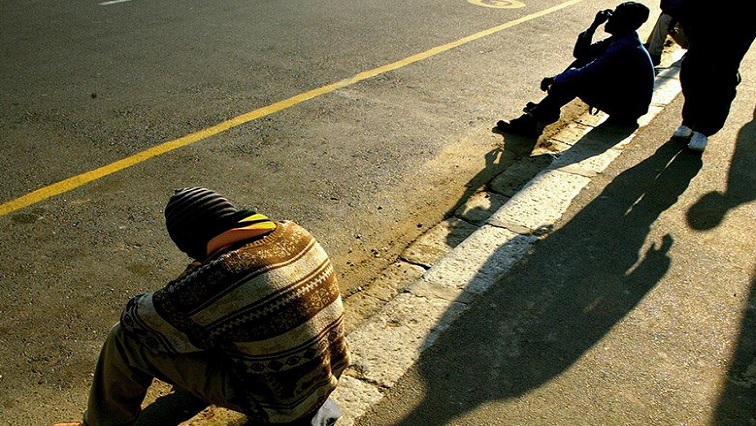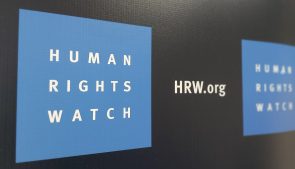Tensions in the freight industry have once again drawn attention to the impact of foreign nationals on the economy and society of South Africa. Representatives of local truck drivers have recently approached a task team comprising the Departments of Home Affairs, Labour, and Transport, with regards to the employment of foreigners in the industry.
The task team was set up after a spate of attacks on trucks in KwaZulu-Natal and other provinces in 2020. The attacks, it was alleged, were committed by frustrated local truck drivers who accused the industry of preferring to employ foreigners rather than South African citizens.
Local truck driver organisations have denied any involvement in the attacks but maintain that South African job-seekers are often overlooked in favour of cheap foreign labour.
Tensions between South African and foreign nationals truck drivers:
The All Truck Drivers Foundation (ATDF) claims that a large portion of truck drivers in South Africa are foreign nationals, and has since embarked on a protest action to demand that foreign workers in the industry vacate their jobs.
Protests and violence against foreign nationals in South Africa are by no means a new phenomenon.
In fact, Xenowatch, a platform that tracks all forms of violence levelled at immigrants and immigrant-owned businesses, has identified thousands of instances since 1994. According to Xenowatch, there have been 529 attacks on immigrants between 1994 and 2018.
Since 1994, over 300 immigrants have been killed, over 900 have been assaulted, and more than 2 000 foreign-owned shops have been looted. In 2018 alone, there were 42 attacks on foreigners with more than half of these incidents occurring in Gauteng and KwaZulu-Natal.
These acts of violence may be committed by a small number of disgruntled and radical local citizens, but a number of surveys have shown that anti-immigrant sentiment is harboured by the majority of South Africans.
Anti-immigrants sentiment among young South Africans
A study by the Human Science Research Council (HSRC) highlighted a 2013 opinion poll which showed more than three-fifths of the adult population would favour closing the South African border to immigration.
This poll found that many South Africans favoured restrictive immigration policies and opposed granting foreigners the same rights as citizens. In another study conducted by the Ichikowitz Family Foundation, titled “African Youth Survey 2020”, young South Africans, unlike their counterparts in the rest of the continent, expressed a pessimistic view of foreigners and refugees.
The Ichikowitz Family Foundation survey captured the feelings and attitudes of the region’s largest demographic group – its youth, by conducting 4,200 face-to-face interviews with African youth between 18-24 years during the first half of 2019.
In terms of the statement, “My country has a moral obligation to help refugees from neighbouring countries regardless of their impact”, 86% in Senegal agreed while 82% in Rwanda also agreed. Young South Africans do not appear so accommodating towards people from other African countries. Nearly 60% of young South Africans interviewed believed that refugees have a negative impact on the country and should be sent back to their countries of origin.
A discussion on xenophobia:
Competition for jobs in a country with a high unemployment rate
One of the main reasons why foreigners are treated with hostility by South Africans is because they symbolise a clear competition for jobs in a country where opportunities are already scarce. The unemployment rates in Senegal and Rwanda, for example, are relatively low compared to South Africa’s. According to the World Bank, Senegal’s unemployment rate was under 10% in 2017 while Rwanda’s unemployment rate stood at 17% in the same year.
South Africa’s official unemployment rate in 2017 was 27%. This could possibly explain why Senegal and Rwanda are more likely to be more welcoming to outsiders than South Africa, as indicated by the Ichikowitz Family Foundation’s findings.
How foreign nationals contribute to SA’s economy
Contrary to popular belief in South Africa, however, immigrants are in fact good for South Africa’s economy. Research by the Institute of Race Relations (IRR) shows that immigrants often create employment and additional income opportunities for locals.
The IRR published a report several years ago which sought to detail South Africa’s immigrant population – where they come from, why they chose South Africa as destination of choice, how many there are and where they are located.
What emerged from the research is that immigrants do significantly contribute to the country’s economy. Firstly, immigrants create jobs for South Africans. Research by the SA Migration Programme which involved 1 136 migrant businesses in Johannesburg and Cape Town concluded that a third of their employees are South African.
Foreign traders also provide another form of income to South Africans in the form of rent, as shown in the report titled “Somalinomics”. This report produced by the African Centre for Migration & Society, and the University of the Witwatersrand, did a case study on Somali informal trade in the Western Cape.
According to the report, Somali traders often experience financial barriers in accessing property in townships. This often pushes them to rent property owned by South African citizens. In other words, a large proportion of South Africans rent out their spazas and single rooms to foreigners, who are, because of barriers such as a lack of citizenship, prevented from accessing bank accounts, bonds, home loans or RDP housing.
Lastly, because many of them are unbanked, their profits are undetectable and thus cannot be taxed. Yet, small-scale foreign traders and spaza operators still have to pay VAT on goods purchased from wholesalers and as a result, indirectly contribute to the nation’s coffers and stimulating wholesale turnover.
From these above-mentioned examples, it is clear that immigrants make several positive contributions to the country’s economy and labour market.
South Africans not informed about immigrants’ contribution to the economy
But none of this is widely known as government officials appear to lack the political will to better inform people on the positive role that immigrants play in the country. In fact, South Africa’s political leaders tend to feed into the narrative that immigrants are a burden to South African society.
In 2020, the Minister of Employment and Labour Thulas Nxesi said that the government is looking at new regulations to limit the employment of foreign nationals in South Africa.
Human Rights Watch (HRW) also notes that local law enforcement officials are often complicit when discriminatory behaviour towards immigrants occur. The organisation also points out that foreign-owned businesses are disproportionately targeted by crackdowns on counterfeit goods, and that migrants are arbitrarily detained for allegedly lacking the right documents.
South Africa currently is going through an economically tumultuous time. Our unemployment rate is much higher than it was during the financial crisis in 2008 and this will only get worse as the full effects of the COVID-19 pandemic become clearer.
As shown above, South Africa needs all the assistance it could get to stimulate the economy. Immigrants, even illegal ones, could help in this regard. And maybe, by making the contributions of foreigners to South Africa’s economy more widely known, we could encourage citizens to be more welcoming and accommodating.
Gerbrandt van Heerden is a senior analyst at the Centre for Risk Analysis, a research unit at the liberal think tank, the Institute of Race Relations





